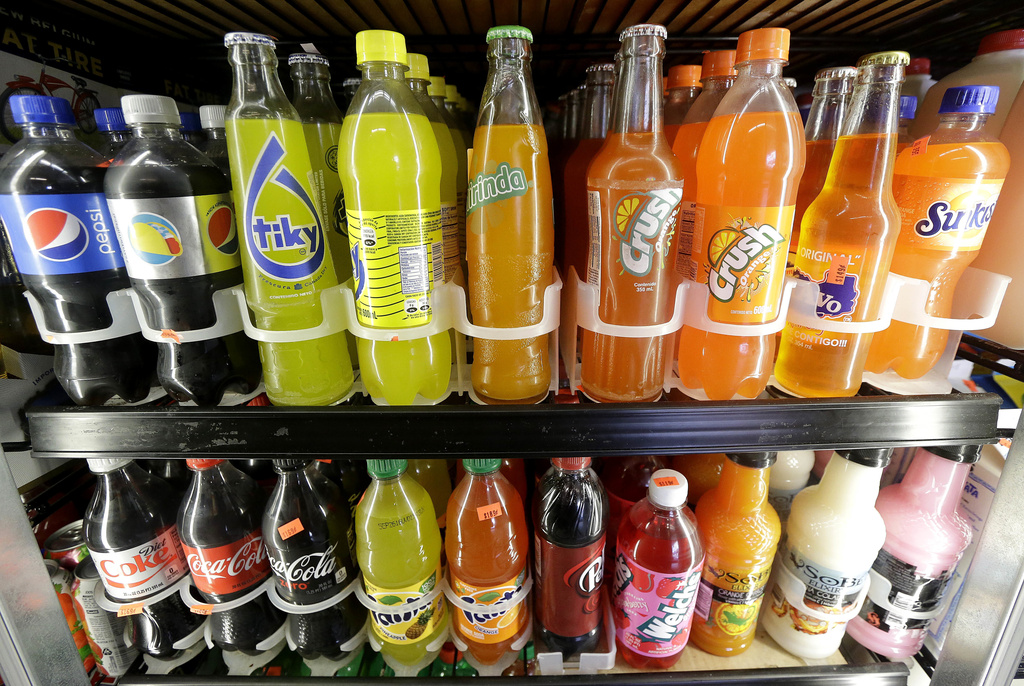
Nebraska was the first state to get a federal waiver to prohibit the buying of sodas and energy drinks Under the assistance plan for economically disadvantaged Americans commonly referred to as food stamps.
The announcement made on Monday by U.S. Agriculture Secretary Brooke Rollins will impact approximately 152,000 individuals in Nebraska who are part of the program. Supplemental Nutrition Assistance Program , known as SNAP, assists households with purchasing food.
There is absolutely no justification for using taxpayer money to fund the purchase of sodas and energy drinks," declared Nebraska Governor Jim Pillen in a recent statement. "The purpose of SNAP is to assist struggling families in obtaining healthier foods; however, these waivers being implemented today will eliminate items that offer no nutritional value.
Arkansas, Colorado, Kansas, Indiana, Iowa, and West Virginia are among the six additional states that have filed petitions with the USDA seeking exemptions to prohibit specific food items and beverages or, in certain instances, enhance access to heated meal options for program recipients.
The effort to prohibit sugary beverages, candy, and similar items from the SNAP program has been a major emphasis for both Rollins and Health Secretary Robert F. Kennedy Jr.
Rollins referred to Monday's action as "a historic step toward Making America Healthy again."
The specifics of Nebraska’s waiver, set to begin on January 1, were not readily accessible at first glance. Critics from anti-hunger organizations denounced it, arguing that it imposes additional expenses, heightens bureaucratic challenges, and exacerbates stigmatization among those who are already struggling with food security issues.
The waiver "overlooks years of research indicating that strategies based on incentives—not restrictive penalties—are the most effective and respectful way to enhance nutrition and decrease hunger," stated Gina Plata-Nino, who serves as a deputy director at the Food Research & Action Center, a non-profit organization focused on advocacy.
SNAP is approximately a $100 billion initiative that assists around 42 million Americans and is managed by the U.S. Department of Agriculture, operating via state administrations.
The program is sanctioned under the federal Food and Nutrition Act of 2008, stating that SNAP benefits may only be utilized "to purchase any food or edible item meant for human consumption," with exclusions for alcoholic beverages, tobacco products, and ready-to-eat meals, such as those prepared for instant consumption.
In recent two decades, legislators across multiple states have suggested halting Supplemental Nutrition Assistance Program benefits from covering items ranging from bottled water and sodas to snacks such as chips, ice cream, and even so-called luxury meats like steak.
So far, the USDA has denied the waivers, citing the lack of clear criteria to classify specific foods as either beneficial or detrimental. Moreover, the agency argued that imposing limitations would be challenging, complex, and expensive without guaranteeing alterations in beneficiaries’ buying habits or lowering issues like obesity.
___
The Associated Press Health and Science Department is supported by the Howard Hughes Medical Institute’s Science and Educational Media Group along with the Robert Wood Johnson Foundation. However, the AP maintains full responsibility for the content produced.


0 Comments